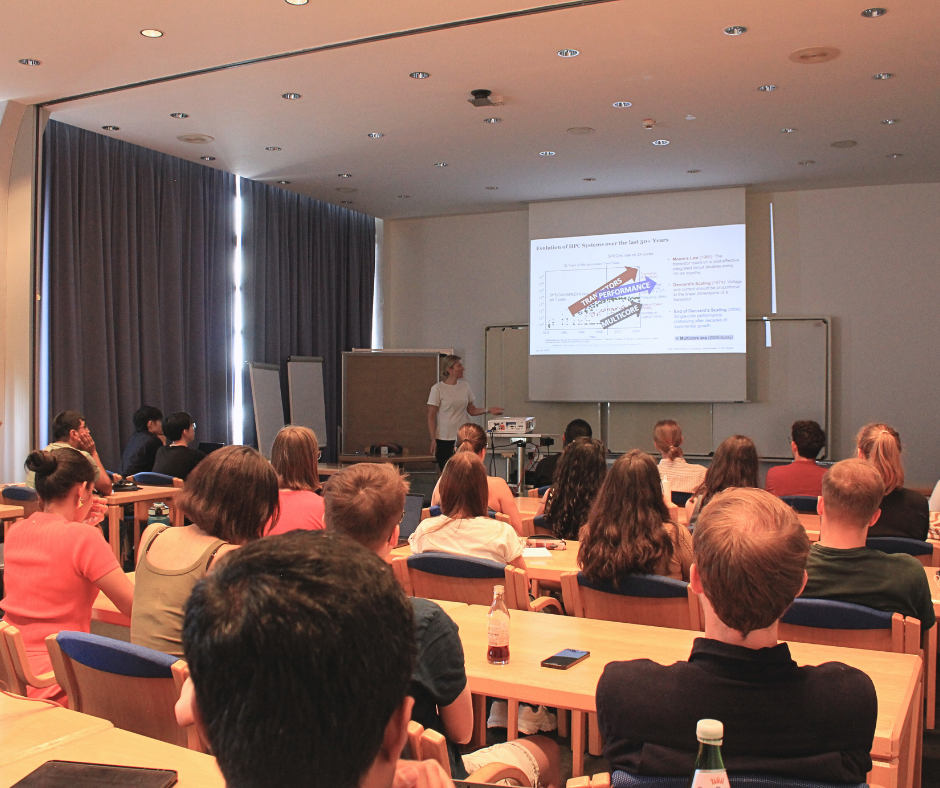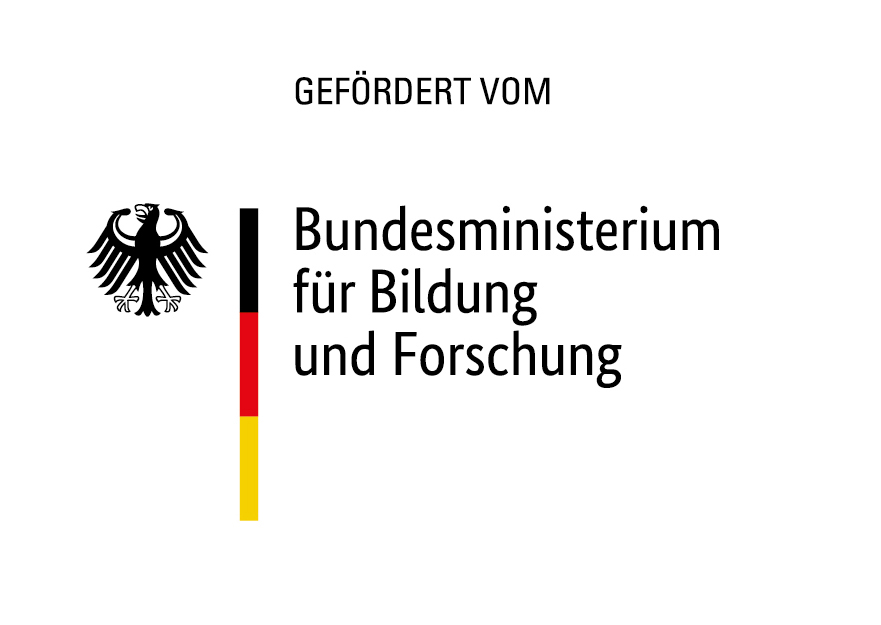The first sparks of the hpc4climate 2025 Summer School
Lauenburg, 28 July 2025 – The 2025 edition of the hpc4climate Summer School has officially begun, and the historic match-factory-turned-hostel in Lauenburg is buzzing with ideas, energy, and collaboration.
The first day culminated in a powerful keynote by Prof. Florina M. Ciorba (University of Basel), who delivered an inspiring and wide-ranging talk titled “High Performance Computing Foundations, Goals & Challenges.” Her lecture framed many of the technical and societal questions the week will explore — reminding participants that the climate crisis cannot be tackled without high-performance computing, and that HPC itself must evolve to meet climate challenges.

Prof. Ciorba unpacked critical concepts like concurrency, parallelism, and distribution, which efficiently exposing and exploiting lay the theoretical groundwork for HPC’s role in climate science. She also emphasized the urgency of addressing tensions between performance, energy efficiency, and carbon intensity, citing the recently proposed in the literature CEP (Carbon-Energy-Performance) Impossibility Conjecture [1] — the idea that no system can simultaneously optimize all three under fluctuating energy and carbon intensity conditions.
Perhaps most striking was her message that “the purpose of computing is insight, not numbers” (R. Hamming), underscoring the ethical and scientific responsibilities of future HPC practitioners, to seek not only performance, but impact through novel insights.
A central case study was the story of the SPH-EXA project: a scalable, massively parallel particle-based simulation framework designed for exascale systems and sustainability-aware simulations. It represents a clear example of interdisciplinary co-design — combining cutting-edge algorithms, GPU optimization, and low-carbon programming languages and supercomputing infrastructure to enable trillion-particle simulations of astrophysical and cosmological phenomena.
In addition to this technical deep dive, Day 1 was also about people. Students from across Europe and beyond began forming connections, exploring the venue, and diving into the shared mission that binds climate science and computational excellence. Whether chatting over lunch or exploring the Elbe River banks, the community spirit and enthusiasm is already palpable :)
As the summer school progresses, we look forward to more in-depth hands-on training and tinkering on ICON, collaborative problem-solving, and discussions on the transdisciplinarity of climate science in the Exascale era — one line of code at a time.
Stay tuned as we continue our journey into the future of climate science and computing.
[1] A Vision for Computational Decarbonization of Societal Infrastructure, D. Irwin; P. Shenoy; M. Hajiesmaili; W. A. Hanafy; J. Oke; R. Sitaraman. https://ieeexplore.ieee.org/document/11018345
